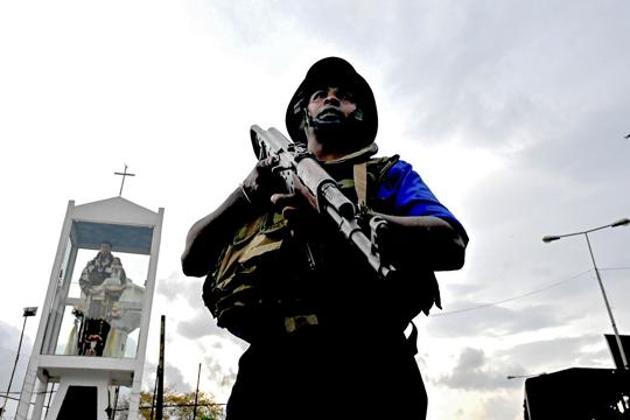Sri Lanka shouldn’t let hubris be followed by war
The country’s leadership and security forces will go into overdrive. This playbook will create yet another generation of individuals who prefer an avenging death, to a real or perceived persecution. And the cycle will go on, paradoxically playing right into the hands of the terrorists.
Aesop’s fable, War and his bride, describes the marriage of Greek Gods. As each God got married one by one, Polemos, the God of war and violence, was among the last remaining bachelor. Hubris was the only one remaining too because she was not picked by any other God. Polemos, however, fell madly in love with his bride and followed her wherever she went. Hence, Aesop warned his listeners, never to let Hubris come to nations or cities because when she does, war and violence will follow.

The terror attacks in Sri Lanka endorse the timelessness of Aesop’s wisdom.
Sri Lanka is no stranger to terrorism having witnessed a civil war for over 25 years, put down with draconian force, barely a decade ago. Their security forces are battle hardened with many of the senior echelons having personally participated in the war against Liberation Tigers of Tamil Eelam (LTTE), one of the most formidable separatist organisations of the world. Sri Lanka’s intelligence prowess is among the better ones in the region, especially for a country of that size, primarily because of the extensive training and aid provided by India, Israel, and other countries. Those agencies had given specific information regarding the impending attacks several days ago. And yet, ISIS, a completely new player to the Sri Lankan theatre, managed to execute a strike that not only ranks as the deadliest of recent years in terms of body count but probably the most effective attack on the economy of a nation that relies heavily on tourism.
While Prime Minister Ranil Wickremesinghe acknowledged an inexcusable intelligence failure, it is worth asking why such critical early warnings fall through the cracks. The sad answer is that it is the very presence of such cracks which enable enemies of the State.
Executing multiple and simultaneous attacks on high-value targets, speaks volumes about the preparation and capability levels of the assaulting teams. Not only do they have to find several committed men willing to kill themselves, but also to reconnoitre targets, coordinate planning, procure explosives all the while maintaining the highest degree of operational secrecy.
It is well known in counterterrorism that every additional target or person added to the operation, increases the risk of exposure by a great deal. And yet, despite the relatively small size of the country and the capability of the Sri Lankan security, this entire operation went on and was not acted upon until its devastating execution.
Prime Minister Wickremesinghe’s allegation that neither he nor his cabinet was informed about the intelligence warnings is a direct castigation of President Maithripala Sirisena, who is also the defence minister. And testimony of the bitter infighting among Sri Lanka’s political leadership in recent years. After the suppression of the LTTE, the Sri Lankan leadership took its eyes off the ball, and was blindsided to the sense of persecution and alienation among its minorities which was leveraged by vested interests. Feuds among the top leadership are often the reason why the right hand does not know what the left does. Ironically, terror outfits across the world often have better collaboration than establishments caught in their own power struggles.
But more important, it is the nature of these power struggles that should be worrying the entire region. Increasingly, sectarian polarisation seems to be the epicentre of seeking mandates in many nations. Not just traditional hawks, but even Nobel Peace laureates like Aung San Suu Kyi, are succumbing to the pressure of sectarianism and condoning ethnic intimidation and alienation under their watch. There is a spate of organised attacks across the region whose core is polarisation. While this might lead to short-term gains, as they seem to, suppression of minority dissent by violence has never ever been achieved anywhere in the world.
The Sri Lankan establishment, like any country reeling under a terror attack, will be tempted to follow a familiar playbook. Its leadership and security forces will go into overdrive. Blame will be attributed and accountability will be shifted. Curfews will be followed by crackdowns, brutal reprisals, and an iron hand approach, much of which will be to compensate for what was clearly a leadership failure. The problem is that most of that iron grip will be felt by an innocent populace, which will be caught between the devil and the deep sea. Many will be afflicted, ostracised and devastated for the sole fault of having the wrong surname or belonging to a certain community.
But this trite playbook will create yet another generation of individuals who prefer an avenging death to real or perceived persecution. And the cycle will go on, paradoxically playing right into the hands of the ISIS, who rely on the heavy handedness of the state and witch-hunting by the majority community, to swell their cadres and perpetuate violence.
Those in hubris must beware that eventually war never spares either hubristic nations or its leaders.
Raghu Raman is a former CEO, NATGRID
The views expressed are personal






